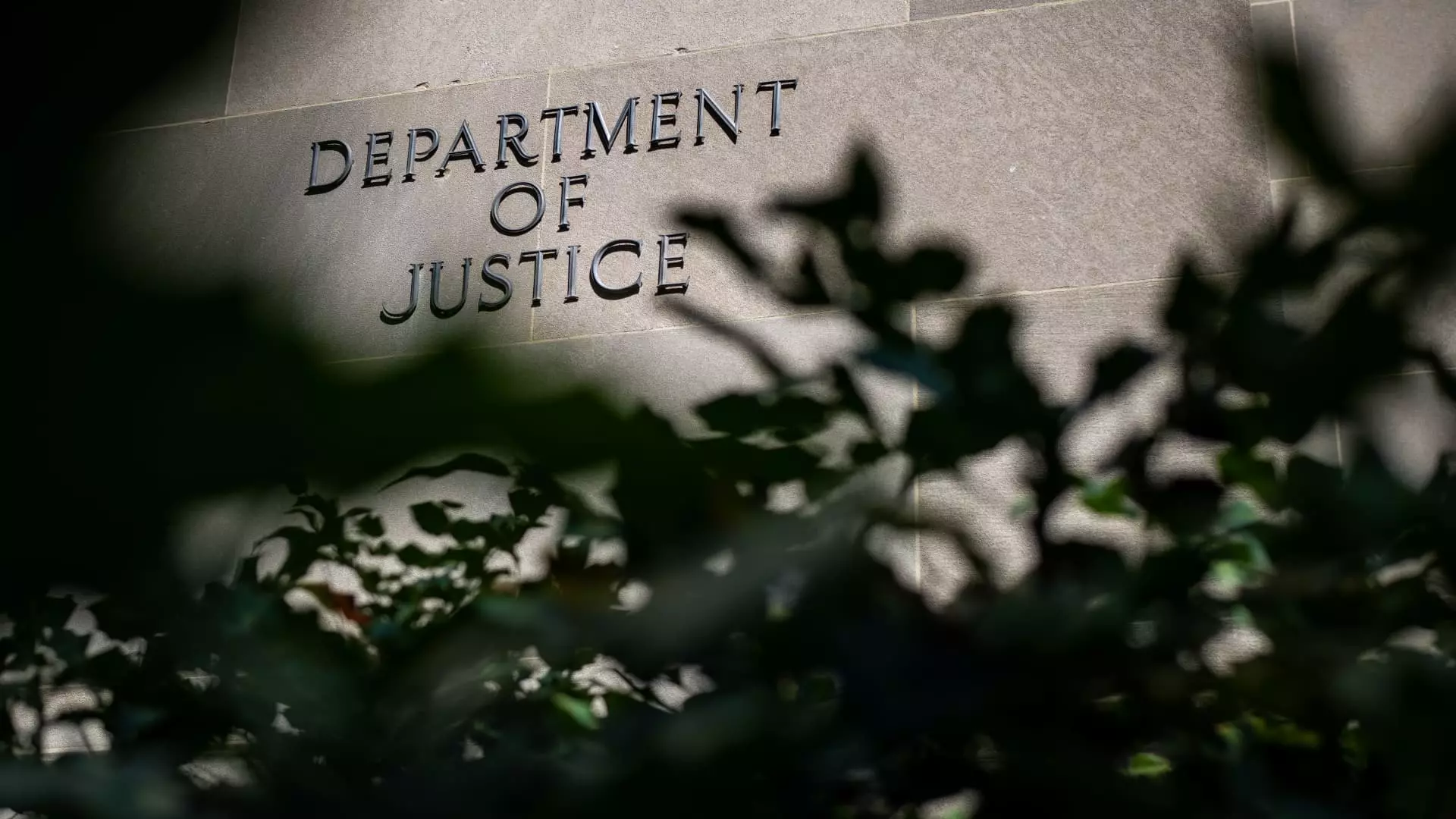In a surprising move, the U.S. Justice Department has disbanded its National Cryptocurrency Enforcement Team, a unit initially established to tackle the rapidly evolving landscape of cryptocurrency-related crime. The directive, issued by Deputy Attorney General Todd Blanche, conveys a dramatic pivot in how the federal government is prepared to address crime in the digital currency sector. By decentralizing enforcement, the responsibility now lies with local U.S. attorney’s offices, which will focus on grave offenses such as terrorism and human trafficking. This shift not only raises eyebrows but also sets concerning precedents that could undermine protections for digital asset investors.
The abrupt dissolution of this unit, which was created in 2022 under President Biden, maps out a regulatory landscape that appears vastly more lenient. The elimination of the focused, centralized team tasked with policing illicit cryptocurrency usage signals a concerning trend towards leniency against potential wrongdoers. This decision stands in stark contrast to the proactive stance taken under past administrations, accentuating a dangerous narrative that seems to favor financial entities over safeguarding consumers and maintaining order in the cryptocurrency market.
Regulatory Reversals and Conflicts of Interest
The disbandment of the enforcement team comes amidst a broader rollback of regulations, particularly in light of President Trump’s campaign that heralds a pro-crypto stance. Trump’s financial interests in cryptocurrencies cast a shadow of doubt on the motivations behind these regulatory diminutions. The emergence of personal crypto ventures within the Trump family, including World Liberty Financial, raises questions about conflicts of interest. When personal gain appears intertwined with policy decisions, the integrity of justice can become compromised, potentially leaving the populace vulnerable to exploitation.
This newly adopted decentralized enforcement strategy will—that is, if the memos accurately reflect the intent—focus solely on prosecuting individuals who exploit the digital assets system. However, this decision to halt many ongoing investigations that previously pursued financial violations signals an unsettling shift towards a legal landscape that prioritizes profit over consumer protection. The idea that crypto exchanges and services will now be insulated from responsibility, unless gross negligence is proven, poses significant risks for investors who can easily fall victim to abuse in an already murky environment.
Implications for Investors
Let’s not mince words: this is a dangerous game being played. By instructing prosecutors to narrow their scope and focus exclusively on egregious actions like terrorism financing, the Justice Department is effectively providing a carte blanche for crypto businesses to operate without the rigorous oversight necessary to protect investors. One could argue that the memo insinuates a lack of concern for the realities faced by average consumers navigating a volatile market, especially those who may be unaware of the subtle intricacies of the law. If regulations and enforcement aren’t monitored closely, the crypto landscape could become a veritable Wild West.
Amidst this regulatory overhaul, the market has already begun to plummet, with Bitcoin’s price falling significantly from its peak and over $1.2 trillion evaporating from the total market capitalization. This steep decline reflects investors’ growing concern over the lack of accountability, transparency, and regulatory oversight. It is evident that the economic climate is perilously unstable; the government’s retreat from enforcement has not only shaken the faith of investors but has also opened a Pandora’s box of opportunities for illicit activities.
The Broader Dangers of Deregulation
Shifting regulatory priorities raise questions about the government’s commitment to fostering a safe and trustworthy environment for cryptocurrencies. Past efforts that categorized enforcement as merely a regulatory framework aiming to rein in a burgeoning industry are now deemed excessive under these new directives. This outright disdain for proactive regulation could embolden malicious actors who capitalize on a decentralized ethos to defraud unsuspecting investors and perpetuate crimes under the guise of digital assets.
The descent of the National Cryptocurrency Enforcement Team foreshadows potential chaos in an already fragmented regulatory ecosystem. As local U.S. attorneys step in to carry out criminal investigations involving digital assets, one wonders about the consistency of enforcement across different jurisdictions. Fragmented approaches often yield inconsistent outcomes, potentially creating discrepancies that bad actors can exploit.
The dissolution of the National Cryptocurrency Enforcement Team signals a troubling mindset within the government, prioritizing deregulation at the potential expense of protecting investors and maintaining the integrity of the cryptocurrency market. In an era where accountability and transparency are deemed essential for a sustainable financial system, this retreat from regulation could have long-lasting implications for U.S. users of digital assets.


Leave a Reply